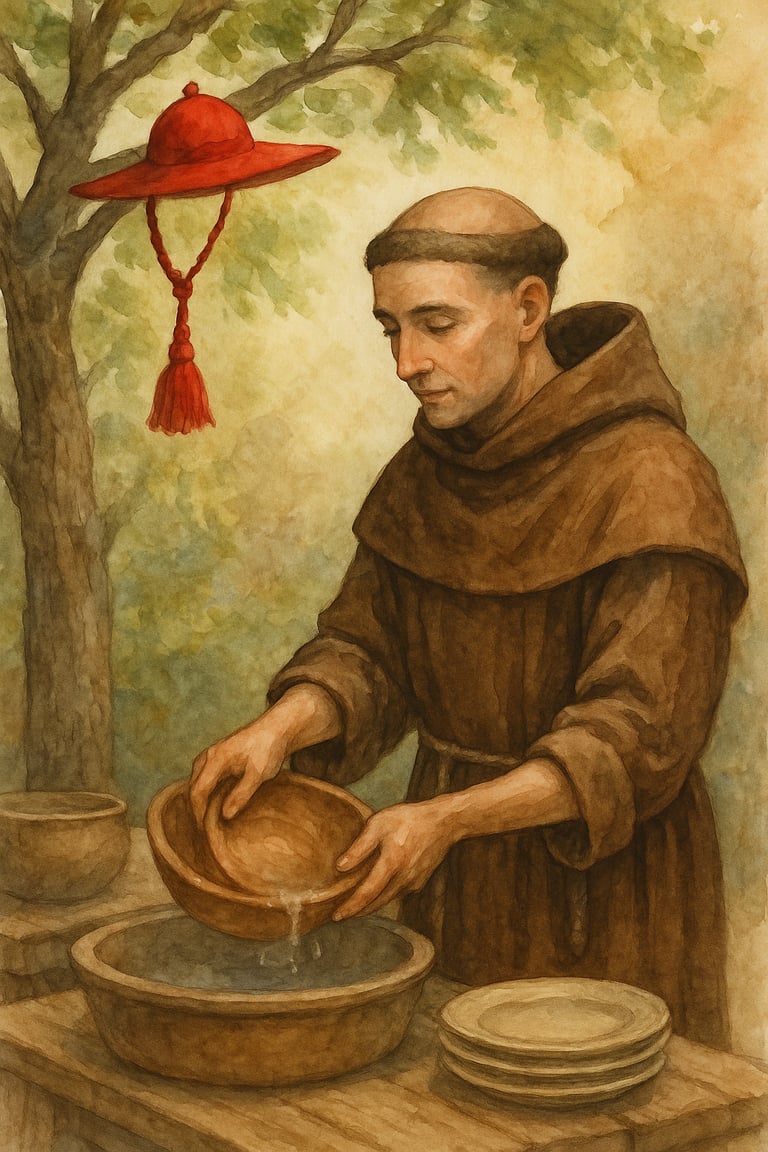St. Bonaventure
The Seraphic Doctor
Halo & Light Studios
7/15/20252 min read


Click Link for a reel of Daily Dose of Saints and Faithful Art:
https://youtube.com/shorts/YBcBvSwUNe0
In the 13th century, the world was awakening. Universities were rising. Crusades were still reshaping borders. Europe pulsed with intellectual renewal and spiritual hunger. In the heart of this era, St. Bonaventure (c. 1217–1274) emerged—a man whose mind illuminated the halls of learning and whose soul burned with mystical love for God.
Born Giovanni di Fidanza in Bagnoregio, Italy, Bonaventure nearly died as a child. According to early Franciscan tradition, St. Francis of Assisi himself prayed over him—and when the boy recovered, Francis exclaimed, “O buona ventura!” (Oh, what good fortune!). From that moment, the child came to be known as Bonaventure.
At around 20 years old, Bonaventure entered the Franciscan Order, which was still young and fiery with Francis’s vision of poverty, simplicity, and joy.
While studying and later teaching at the University of Paris, Bonaventure became one of the most brilliant minds of his age. He was a contemporary—and friend—of St. Thomas Aquinas. Yet where Aquinas built theology on the logic of Aristotle, Bonaventure drew from St. Augustine, weaving intellect with mysticism. He taught that to truly know God, the heart must burn with love, not just understanding.
At the time, the Church was navigating deep internal struggles. The Franciscan Order was splitting between those who wanted stricter poverty and those leaning toward comfort. As Minister General, Bonaventure brought peace and structure, earning the title “Second Founder of the Franciscans.” His Legenda Maior, the official biography of St. Francis, remains a spiritual classic.
He wrote deeply mystical works, especially The Journey of the Mind into God, which invites the soul to ascend through creation, self-knowledge, and love into union with the divine. “Seek not the teacher,” he wrote, “but the Bridegroom. Look for the fire that carries the soul to God.”
In 1273, Pope Gregory X made him a Cardinal, but when the messengers arrived, they found Bonaventure washing dishes. He told them, “My hands are wet just now. Kindly hang the hat on that tree.”
A year later, while helping organize the Second Council of Lyon, Bonaventure died—some say by poison.
His legacy? A Church more balanced between intellect and devotion. A Franciscan Order made whole. And a vision of God not only to be studied but loved with fire.
Feast Day: July 15
Titles: Doctor of the Church, Seraphic Doctor
Patron of: Theologians, Franciscan scholars
